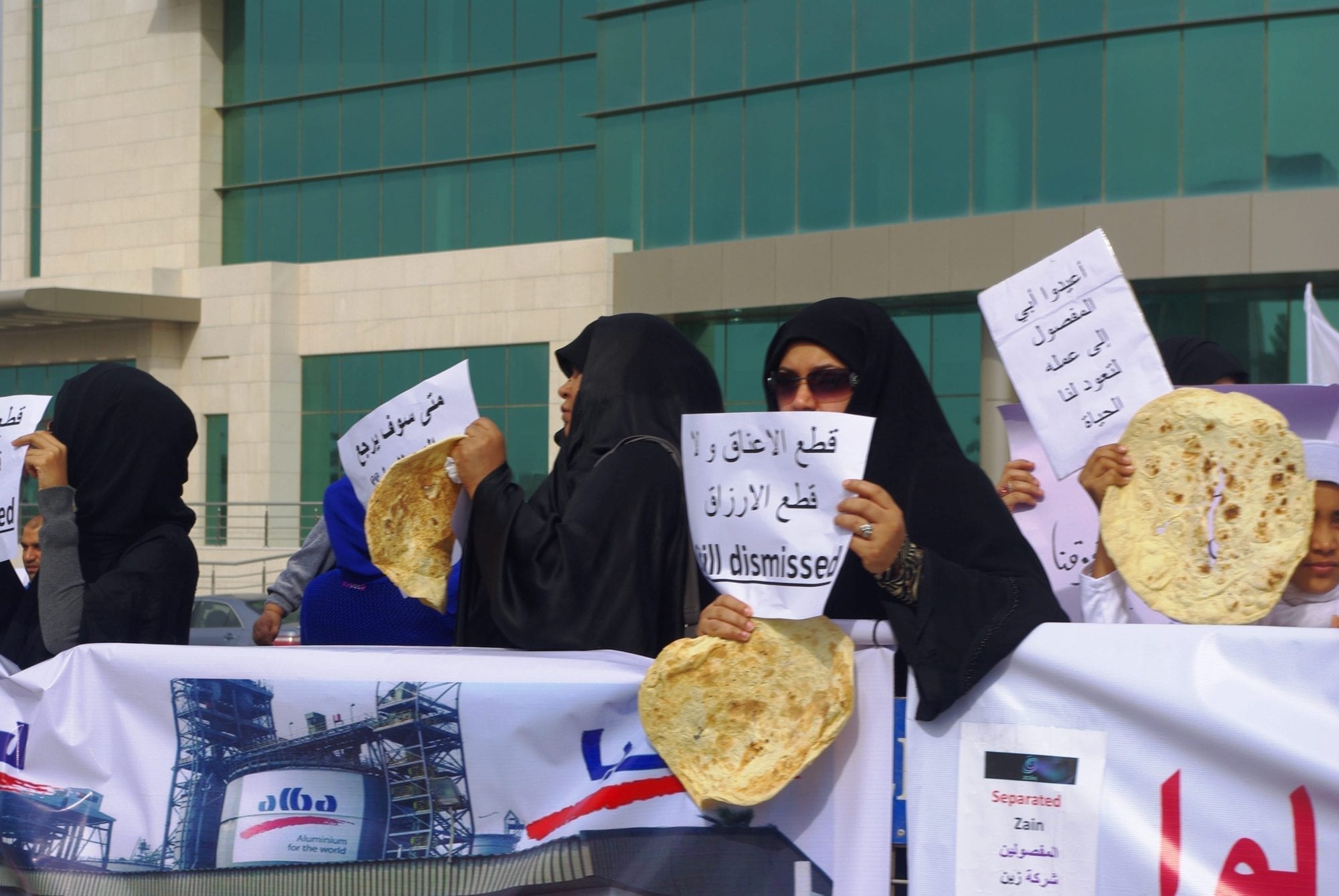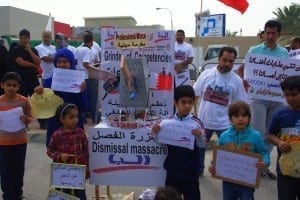
Bahrain’s Sad Anniversary: Three Years of Worker Repression

Many children of fired workers cannot attend school because their parents cannot afford tuition. Credit: Kate Conradt
Three years after the people of Bahrain stood up for a more participatory government, the crackdown on dissent and rampant discrimination in the workplace continues.
Hundreds of workers—including teachers, doctors, nurses and journalists who were doing their jobs when marches were met with violence—have been fired, demoted or sidelined at their workplaces. Many were imprisoned and tortured, including the president of the Teachers’ Association who remains in jail.
During a recent trip to the island country, the Solidarity Center met with workers still without employment despite government commitments to rectify wrongful dismissals. These include workers who were fired in the immediate aftermath of the February 2011 democracy protests and those who are losing their jobs now. One woman was fired after she was imprisoned and tortured for not surrendering a music cassette at a checkpoint. A hotel security guard, trained in emergency medicine, was fired for treating injured protesters. Leading medical specialists, including one of the country’s few rheumatologists, have been denied hospital credentials. Journalists say they have been blacklisted, not only in Bahrain but across Gulf countries, forcing them to seek a way to learn a living far outside their training.
In addition, workers reported that even if they had been reinstated to their jobs, their responsibilities had changed or disappeared. Managers have been demoted. Others have jobs in name only—but often not even a desk to sit at. One airport service worker had his job changed and was told to report to an isolated location and given nothing to do. This discrimination is systematically deepening, workers say, as companies ignore labor law when they fire staff or get rid of workers under the guise of restructuring—only to rehire for the same positions just “eliminated,” as happened with at least one worker at the national airline. Companies are even advertising and hiring from abroad for positions previously held by Bahrainis.
The crackdown also extends to trade unions, with union leaders being pushed out of their jobs and company-friendly unions being established. Longstanding unions no longer have access to managers to negotiate, as they had in the past. And union leaders often find themselves in court for random charges. At Bahrain Aluminum (ALBA) , the company has steadfastly refused to deal with a newly registered independent union, has ignored legal requirements to turn over dues payments and refused to respond to even one of the 40 letters the union has written to it. Meanwhile the country’s labor ministry has done nothing to remedy the situation.
Despite the atmosphere of discrimination and threats, workers continue to fight for their rights—and for the jobs from which they were wrongfully dismissed. They regularly march in front of the Ministry of Labor, hoping that justice will finally be served and that Bahrain can return to a place where worker rights and the rule of law are respected.
